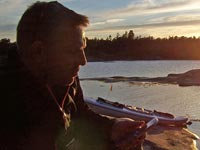
When I first discovered the lure of the outdoors on bothy trips and hillwalking weekends in the Highlands of Scotland in my twenties, mobile phones were mysterious, bulky devices wielded only by fast-talking stockbrokers – I distinctly remember laughing out loud at the sight of one besuited yuppie braying “Sell! Sell!” into a monstrous thing the size of a lunchbox as he strode commandingly along a street in Edinburgh.
I didn’t know anyone who owned one. And even if I had, they certainly weren’t something you’d want to take on an outdoor adventure.
Why would you? The thing would take up half your backpack and leave no room for the chocolate biscuits. Those were the days of lo-tech adventuring – we simply left a note on the car dashboard saying, “Party of 4, Glen Affric bothy, returning 5th April”, and headed off into the hills.
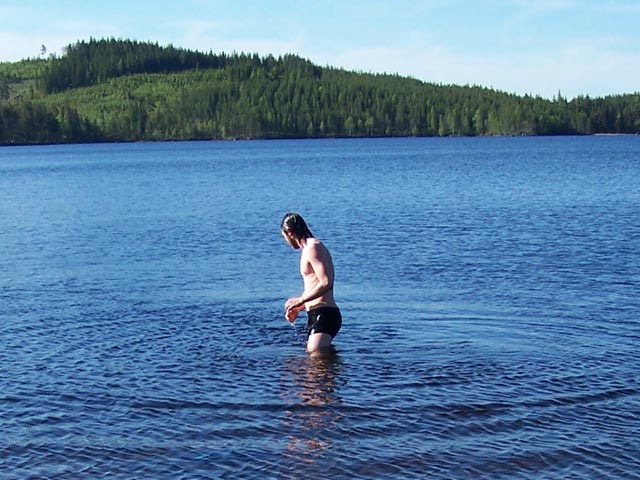
Fast forward 25-odd years and the world is of course a very different place. The word “phone” no longer accurately describes the miniaturised miracles we all carry with us wherever we go. Actually making calls now comes far down the list of most common uses of a mobile phone. Many users even say they could happily do without a call function on their phones completely!
Mobile phones have permeated every corner of our lives, and the time we spend in the outdoors has not escaped the invasion. But what have we gained, and what might we have lost, along the way?
“Your phone is not a substitute for your brain”
There is no doubt that the prevalance of mobile phones has made a huge contribution to the safety of travellers and outdoor enthusiasts. Hours of walking to find the nearest phone or the front door of a friendly local to knock on can now be replaced with a call to emergency services (or friend, or maybe Mummy!) in seconds.
Sounds great – but (take a deep breath, this may be a painful revelation):mobile phones don’t always work!
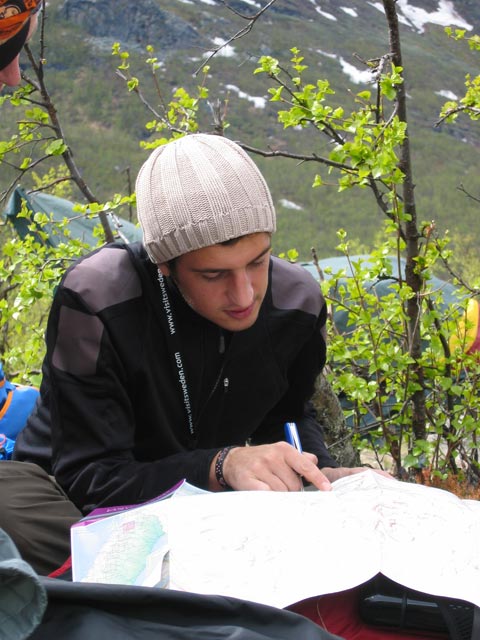
Consider any of the following scenarios:
- Your battery is dead (and no, you don’t have a powerpoint nearby, you’ve already used up the charge in the powerbank you brought with you, and you can’t use your solar charger because it’s raining). It’s probably dead because you’ve spent the last 3 days regularly updating your Facebook status.
- There’s no reception. The Nordic countries have amazingly good coverage even in the remotest of areas (compared to Dorset, where the Nature Travels office is located, where we only get a signal if we stand on the roof holding a coat hanger), but there will still be many areas where you have no reception.
- You’ve dropped your phone in the water (even a waterproof case won’t help you if your phone is 10m below you at the bottom of a murky lake buried in the silt), or, as Sofia from the Nature Travels team did recently much to her embarrassment, down the loo at Gatwick airport.
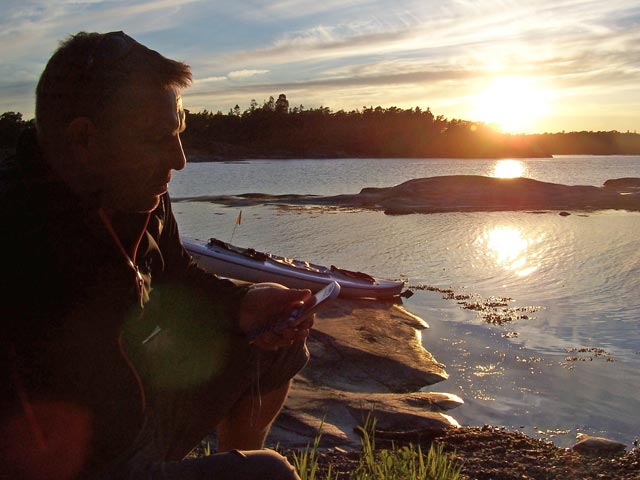
So, bring your phone on your adventure – we always ask that guests provide us with a mobile number while travelling in case we need to get in touch – but please don’t let your phone be a substitute for planning and common sense.
So how should I use my mobile phone on an outdoor adventure?
Yes, but:
- Prepare for your trip on the assumption that your phone won’t work.
- Take a map and compass and know how to use them.
- Take a First Aid Kit and know how to use it.
- Tell people where you are going and when you expect to be back.
- Take necessary care to avoid problems and injuries.
- Keep your phone turned off until you absolutely need it. This not only means that you will still have battery left if you ever actually need it in an emergency (or even just for a quick call back to the kids at home), but also allows you concentrate on actually enjoying your trip rather than making sure your friends know that you’re enjoying your trip. After all, why are you travelling? Is it for your own enjoyment and to create memories that will last a lifetime? Or it is just to make the folks back home jealous that you’re having more fun than they are? Your friends will not desert you, nor your office descend into chaos, if you go off-grid for a few days.
- Don’t use your phone as your main camera for the trip. Or if you do, make sure you have a back-up phone that is always kept charged or at the very least always save some charge in a power bank so you can recharge the phone if you should need it in an emergency.
- Bear in mind that mobile phone battery life will be significantly reduced in cold weather. If you’re doing a winter adventure such as one of our dog sledding or ski touring experiences, keep your phone close to your body – in an inside chest pocket during the day and in your sleeping bag with you at night – to prolong battery life. iPhones in particular are notorious for the battery dying almost instantly when exposed to the cold.
- Don’t bring your brand new iPhone on your two-week wilderness canoe tour (yes I know the camera on it is amazing…). Take an old phone that you won’t cry over if you drop in the lake or leave on the train – you’ve almost certainly got one lying forgotten in a drawer somewhere.
- Above all, don’t use the thing more than you absolutely have to – instead, concentrate on having a fun-filled, phone-free adventure that you will remember for a lifetime!
A final word on cameras: “Experience with your eyes as well as through your lens”
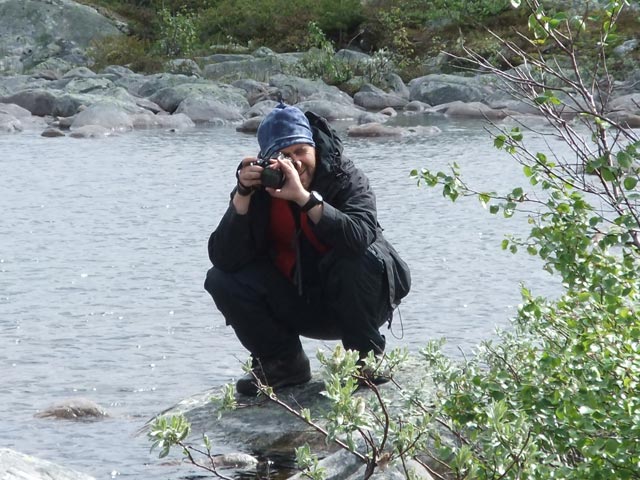
Your camera (or the camera on your phone!) can also be a negative as well as a positive influence on your trip. Taking photos is one of the great pleasures of travelling – we love to receive photos from our guests, many of which are stunning!
…..but don’t let taking photos distract you from simply enjoying the experience of the scenery, the wildlife, the culture and the people around you. If taking photos comes at the expense of actually experiencing your trip with all your senses and making your own memories, maybe it’s time to leave it in your pocket a little more. And after all, how many of the photos you take are ever likely to be truly savoured or enjoyed when you get home?
The same applies to music (coincidentally something else you can use that pesky phone for). Yes, listening to music can be a great way to while away a boring bus journey or a long wait at the airport, but don’t you have plenty of opportunity at home to listen to One Direction’s greatest hits (sorry, 1D)? Take the earbuds out once in a while and you might end up chatting to a local or fellow traveller who might become a friend for life, or at least for the next 30 minutes, hearing a rare bird in the forest, or just appreciating that rarest of modern commodities, a little silence.
Unless of course you happen to be listening to ABBA, which is important cultural research and therefore exempt from the above…..;-)
Best regards
Bob from the Nature Travels team
